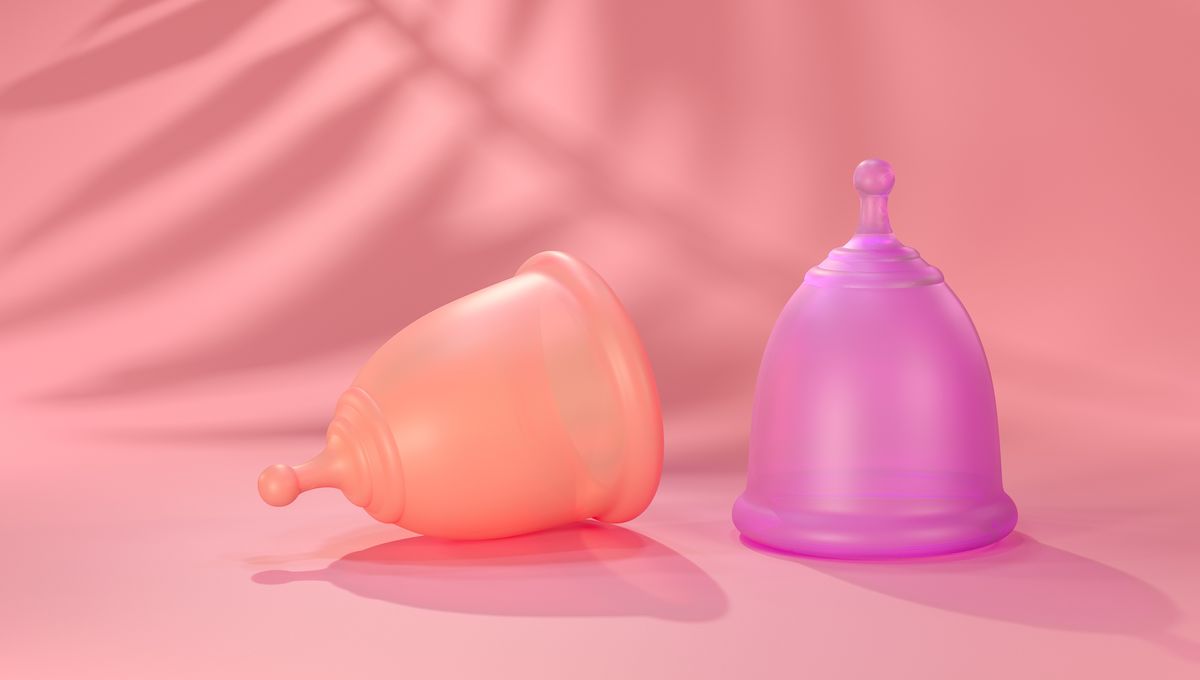
Ever wondered how people manage their periods in space? Thankfully, astronaut Samantha Cristoforetti previously came to the rescue with an explanation, which basically boiled down to, “Just like you do on the ground.” But it’s no secret that many of the legacy systems on spacecraft were very much designed without women in mind. In both a demonstration of their space-worthiness and to reopen the conversation about menstrual choice for astronauts, researchers recently sent a pair of menstrual cups hurtling towards the troposphere.
The history of mission controllers seeking to accommodate the needs of female astronauts is paved with good intentions, but not so much with an understanding of how menstruation actually works. Who can forget the case of Sally Ride, who shortly before becoming the first American woman in space, was earnestly asked by well-meaning engineers whether 100 tampons would be a suitable supply for a weeklong flight?
“No. That would not be the right number,” Ride replied, as she recalled in an interview in 2002, going on to explain that they could very safely halve it.
These days, the situation has improved, but for shorter missions, it is common for astronauts who menstruate to stop their periods with hormonal treatment for the time they will be in space. For longer missions, tampons and pads are available, but waste disposal is not without cost. With the push towards more sustainable menstrual products for the Earthbound, astrobiologist Lígia Fonseca Coelho couldn’t see any reason why these same options might not one day be available to astronauts.
“If you say to a woman, ‘you have to put your reproductive system on hold for five years and this is the only way you can go to Mars,’ we are going to have problems,” Coelho said in a statement. And so, AstroCup was born.
The six-person AstroCup team designed and made a container that would carry and monitor two menstrual cups launched as experimental payload on the Portuguese rocket Baltasar, which successfully lifted off to an altitude of 3 kilometers (1.9 miles) in October 2022.
Having received bids from several menstrual cup makers, the Finnish company Lunette was selected for the experimental flight. After experiencing a few minutes of microgravity, plus all the turbulence of a rocket launch, the cups were retrieved and tested to ensure that they remained functional.
“They performed very well,” said Coelho. “Now we know that cups made by Lunette, and probably other brands, are very resilient in the turbulence and microgravity of a rocket launch.”
The next step is to get menstrual cups onto the International Space Station, to see how they fare under long-term radiation exposure. The AstroCup team are currently in negotiations to try and make that happen.
It’s not the first time Coelho has set her mind towards problem-solving for space travel, and this wasn’t her first payload experiment rodeo either – she previously worked on a team who sent photosynthetic microbes to space onboard Blue Origin’s New Shepard, an experiment that could lead to the development of new food sources for astronauts.
Fundamentally, it’s about finding ways to allow long-term space travelers some of the comforts of home.
“It’s already going to be uncomfortable to not have air to breathe, to not have water from a natural source to drink. They won’t have the same amount of gravity. Sleeping is going to be weird,” Coelho explained.
“Let’s make them as comfortable as possible so they can have their normal human processes happen in a positive way, so they can focus on finding life on Mars, on building the colony, on putting us in the next frontier.”
Source Link: The Important Reason Why Two Menstrual Cups Just Took A Trip On A Rocket